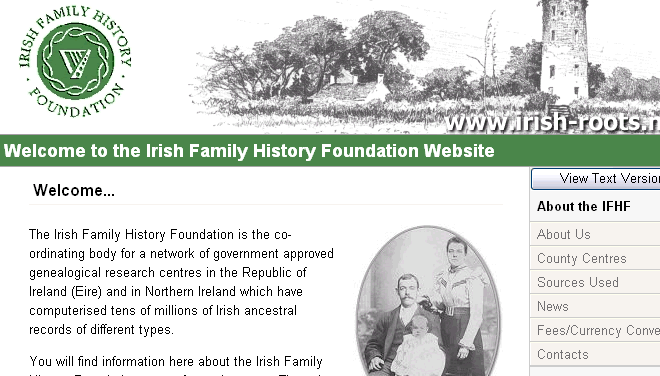1. Search for the Entire Family
 Certainly you searched for the entire family because, as we previously
learned, one member of the family may have kept records that your
direct-line ancestor did not. But this time you may be searching
more in depth into the siblings of your ancestor because hopefully
one of them, or their descendants, may have recorded the place name
you are seeking. Thus searching for the entire family requires descendancy research. Certainly you searched for the entire family because, as we previously
learned, one member of the family may have kept records that your
direct-line ancestor did not. But this time you may be searching
more in depth into the siblings of your ancestor because hopefully
one of them, or their descendants, may have recorded the place name
you are seeking. Thus searching for the entire family requires descendancy research.
Descendant research can be a useful tool in furthering your ascendancy
research by locating family and home sources that are in the hands
of living relatives. It is equally rewarding to see the posterity
of an immigrant ancestor. Descendant research will tax your genealogical
skills as well as your interviewing and communication skills.
It is a common misunderstanding that to do descendant research
you simply "reverse the ascendancy research process."
This is not true. Rather than "Where did an ancestor come from?"
you must ask "Where did his/her descendants go?” Now
you must think, “Who generally gets the genealogical family
memorabilia?” Well, the father’s keepsakes often go
to the eldest or youngest sons. Record collections have different
emphasis in descendancy research as well. For example, manuscript collections become very important.
We will learn more about this as the course progresses.
2.
Search Broad Time Periods
This second research technique to search broad time periods comes
from the fact that we are dealing with people who make mistakes,
who forget exact dates, and who may even forget a child who died
in infancy. Shy people being approached by government officials
to make statements without time to think much about them, can give
wrong information. Therefore, when the "facts" as recorded
on census or other records doesn't work, continue to search in broader
time periods.
 While
attending an Irish research class taught by Gerald Delaney who has
served for over fifteen years as a director of the Irish Family
History Foundation and as Manager of the South Mayo Family Research
Centre, I was surprised to hear a most plausible reason for why
Irish individuals gave different birth dates on their records. While
attending an Irish research class taught by Gerald Delaney who has
served for over fifteen years as a director of the Irish Family
History Foundation and as Manager of the South Mayo Family Research
Centre, I was surprised to hear a most plausible reason for why
Irish individuals gave different birth dates on their records.
To the Irish a person's birth date was about as important as knowing
your exact height and weight at any given moment. It also appears
that the population of Ireland was asked to report births within
21 days of the event. But if the registration office was far away,
or the event occurred in the middle of a busy harvesting season,
or someone was away from home to report it, the person giving the
information would just move up the day to fall within the 21 day
period. After all, it was just for the government, and that was
close.
Then some of the boys grew up and join the Irish Secret Service.
They eventually try to retire. Their family records such as a Bible,
might give the date of birth as May 1, 1870, or maybe the Priest
recorded the birth at the time of christening that agreed with the
birth in the Bible. The man would prepare to retire on May 1st only
to find out that the government had him listed as born on June 5.
This was the date his dad got around to reporting the event. The
government official had to continue working another month and a
few days to qualify.
Certainly each of you would search a few months before and after
an Irish birth date! And the same applies to a marriage. The first
birth can happen at any time, but it is possible for a couple to
go many years after a marriage before the first child is born. What
range of years are you planning to search for your ancestor(s) and
his/her siblings knowing what you now know? Be sure to make proper adjustments to your Record Evaluation Checklist that you were given on the previous page. |